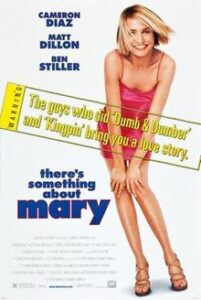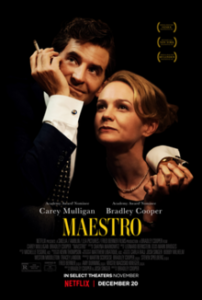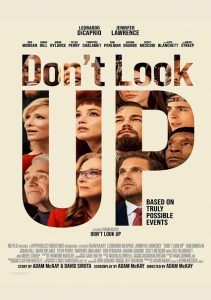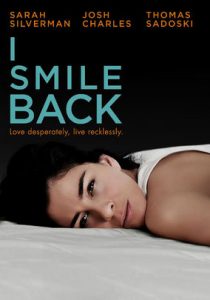There’s Something About Mary-1998
Director Peter Farrelly, Bobby Farrelly
Starring Ben Stiller, Cameron Diaz, Matt Dillon
Scott’s Review #1,428
Reviewed June 16, 2024
Grade: B+
Since many films are released within the romantic comedy genre most are disposable and forgettable. Very few stand out initially let alone stand the test of time.
Decades later, There’s Something About Mary (1998) holds up well mostly because of its chemistry and laugh-out-loud memorable moments. It also has a heart and is not mean-spirited showcasing a brewing romance people can relate to.
Watching in 2024 particularly interesting is the appeal of Cameron Diaz since retired from acting, and a young Ben Stiller who was then in his heyday and a box-office gem. Brett Favre, who then was a superstar NFL quarterback makes a cameo appearance.
Pleasing is to watch a hit film from decades ago that still offers appeal.
Ted’s (Ben Stiller) unexpected dream prom date with Mary (Cameron Diaz) in 1985 is disastrous due to an embarrassing injury at her home causing them never to get to the prom. Mary leaves town shortly after.
Thirteen years later, pre-social media in 1998, Ted hires shady investigator Pat Healy (Matt Dillon) to track down Mary so he can reconnect with her. Pat becomes obsessed with her and lies to Ted about Mary, finding out everything he can about her to trick her into dating him.
Ted realizes the truth and travels to meet Mary in Miami, Florida where she is a successful orthopedic surgeon to reconnect with her.
Instantaneous hilarity comes to mind from two legendary scenes involving Ben Stiller’s Ted that most people have heard of.
While using the bathroom at Mary’s house before leaving for the prom Ted gets his private parts or ‘frank and beans’, caught in his zipper. Every male viewer will squirm in imagined discomfort but the hijinks with Mary’s parents and neighborhood firefighters who get involved make the sequence legendary.
This pairs well with a later scene when Ted masturbates just before his date with Mary to relax. Mary mistakes some ‘residue’ on Ted’s ear for hair gel and hilariously applies it to her hair causing it to stick straight up in the air during dinner.
Both scenes still feel fresh and natural years later and are now historical.
The introduction of Tucker (Lee Evans) a third admirer of Mary doesn’t work so well in hindsight. The revelation that he is not a British architect but merely a pizza deliverer who injured his back to get close to Mary feels forced and unnecessary.
The triangle between Ted/Mary/Pat is just enough.
The inclusion factors are impressive. In 1985, Mary had a black stepfather and a mentally disabled brother both of whom she adores. When Ted drives from Rhode Island to Florida he stops at a rest area and is assumed to be gay. This is preceded by a session with a psychiatrist who suspects Ted may be gay.
These additions go a long way to showcase normalcy in these individual areas.
It’s also impressive that the Farrelly brothers (Peter and Bobby), who direct the film, make Mary a surgeon paving the way for female viewers to aspire to the same.
There’s Something About Mary gets a slight knock for exploiting female breasts, Mary is seen at least twice through a window putting on a bra while a male spies on her from the distance.
The characters are benevolent especially Ted and Mary making it easy for the audience to root for them. Thanks to the tremendous chemistry between Diaz, Stiller, and Dillon, There’s Something About Mary (1998) feels fresh and romantic without a forced feeling.




